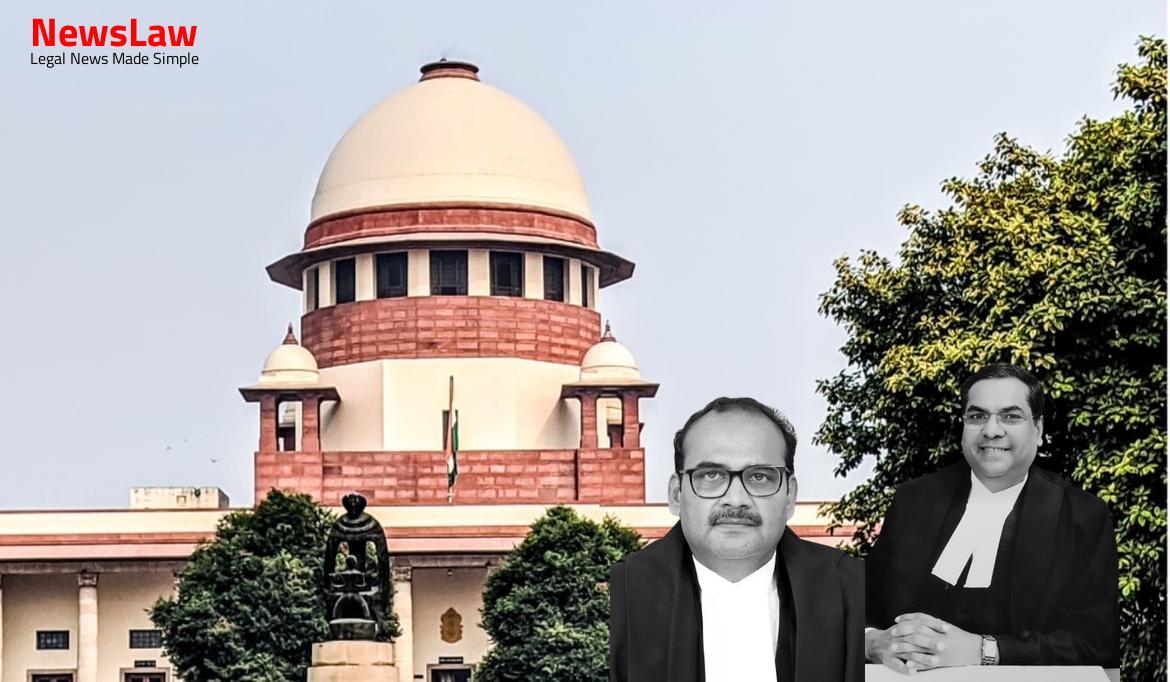Delve into the world of judicial review in recruitment processes as we unravel the nuances of legal analysis by the court. Discover how the court’s scrutiny of relevant laws and enactments impacts decisions in a crucial case. Stay tuned to understand the significance of upholding legal requirements in such matters.
Facts
- Respondent no.1 filed a writ petition arguing for a 40:60 ratio in recruitment, claiming her first preference in Zone VI as a local candidate.
- Candidates who do not get their first preferred zone due to lack of merit are considered for their second preference.
- An amendment in Annexure II stated that 30% of posts are filled based on combined merit lists of locals and non-locals, while the remaining 70% are filled with locals only.
- Rule 22 of Telangana State and Subordinate Service Rules, 1996 mandates appointments be made in order of rotation on a 100 Point Roster.
- The government has discretion to constitute committees for advice on allotment to State, Zonal, and District cadres.
- The Andhra Pradesh Public Employment Order 1975 established zonal and local reservations, to be followed per GOMs No 124 dated 07.03.2002.
- Candidates are selected and allotted to Residential Educational Institutions Societies based on options exercised, rank in the merit list, and zonal preference.
- The appellant issued a recruitment notification for junior lecturers, with respondent nos. 1 and 2 belonging to Roster Point No.2 (Scheduled Caste Women).
- Out of 7 vacancies, 4 had to be filled based on reservation, leaving 3 for unreserved category.
- Division Bench of Telangana High Court confirmed Learned Single Judge’s decision in favor of respondent no.1.
- The writ petition by respondent no.1 was allowed, setting aside recruitment in favor of respondent no.2.
- Merit list was ordered to be redrawn.
- The Single Judge fixed the reservation ratio at 40:60 and found no basis for the reservation ratio.
- Respondent no.2 should not have been considered under Zone VI as it was her second preference.
Also Read: Legal Analysis in State vs. Union Territory Jurisdiction Case
Arguments
- Learned counsel for respondent no.1 argued that no fair procedure was adopted.
Also Read: Compliance with Article 22(5) of the Constitution: Duty to Serve Grounds of Detention
Analysis
- The High Court’s decision was deemed erroneous in adopting a wrong ratio and fixing 70% initially.
- A candidate can be considered in another zone as long as it is part of the option she selected.
- Courts need to be cautious and deliberate when intervening in recruitment processes handled by agencies.
- Judicial review should consider all relevant orders, rules, and enactments prior to making a final decision.
- The application of the 30:70 ratio in this case lacked clear logic and reasoning, offering only 2 out of 7 posts for local and non-local candidates.
- The court does not possess expertise in assessing the fitness of candidates for specific posts, which remains the task of duly constituted Selection Committees.
- The university in this case followed relevant statutes in constituting the Selection Committee, comprising experts who made selections based on thorough review of all pertinent material.
- The rules stipulate that 30% of posts for both locals and non-locals must be filled before the remaining 70%, impacting not only respondent no.2 but numerous others.
- In the case of Dalpat Abasaheb Solunke v. B.S. Mahajan, the High Court was criticized for setting aside a selection based on its assessment of the comparative merits of candidates.
- The High Court was faulted for combining the cases of two appointees, even though their appointments were challenged on different grounds.
- The High Court was also rebuked for sitting in appeal over the decision of the Selection Committee and determining the relative merits of the candidates.
- The appellant has correctly followed the mandate of law
- There is no doubt about the adherence to legal requirements
- The actions of the appellant align with the law
Also Read: Dismissal of Application Seeking Bail Relief
Decision
- The impugned order passed by the Division Bench and the Single Judge of the Telangana High Court are set aside.
- The appeals are allowed by restoring the recruitment made in favor of respondent no. 2.
- No costs are ordered.
Case Title: THE TELANGANA RESIDENTIAL EDUCATIONAL INSTITUTIONS RECRUITMENT BOARD Vs. SALUVADI SUMALATHA (2024 INSC 176)
Case Number: C.A. No.-003849-003850 / 2024



